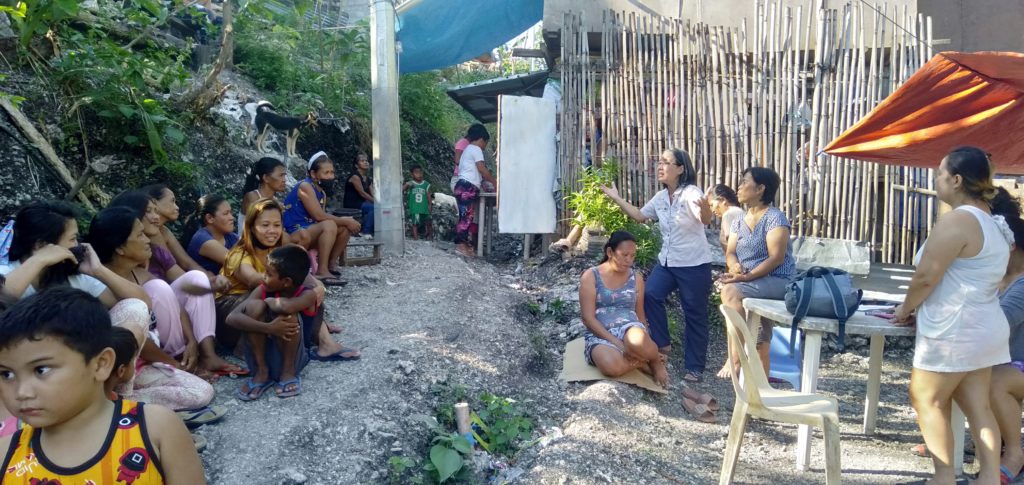During visits to urban poor communities in the cities of Cebu, Mandaue and Lapu-lapu to distribute relief goods donated by kind benefactors, staff members of the Visayas Primary Healthcare Services gathered information regarding the effects of the crisis on the health situation of the people.
During the relief distribution, the VPHCS saw that health protocols to stop the pandemic are practically difficult to comply. Social distancing is nearly impossible since urban poor settlers
live in densely populated, impoverished communities, where families live in one or two-room dwellings and share bathrooms with neighbours. The lack of running water, access to nutritious food and dilapidated housing conditions in these poor communities makes advice such as handwashing, maintaining good nutrition and self-quarantine when one gets sick, also impossible.
Acute respiratory tract infections or cough and colds were common among the residents and can be attributed to their lowered body immune system due to the lack of food. Non-ulcer dyspepsia was also common since the residents skipped their meals because there was no food to eat at all. Tension headache was also common.
Residents who said they were hypertensive and diabetic said that they stopped taking their maintenance medicines because their health centers ran out of the medicines and they could not afford to buy the medicines since looking for food was prioritized first.
The VPHCS also gathered information that in the eight rural communities in the Municipalities of Medellin and Daanbantayan in the north part of Cebu served by the CebuBohol Relief and Rehabilitation Center (CRRC) through a project supported by Caritas Austria, the situation was no different from the urban setting. The VPHCS implemented the health component of the project with the CRRC in 2018 – 2019.
While farmers rely on their homegrown crops such as corn, bananas, sweet potato, cassava, taro and vegetables, and small fisherfolks are still able to go out to sea to fish, there are residents who rely on other means of livelihood for a living. They include the tricycle drivers, port workers, vendors in the markets, clerks in stores that have been closed, and other workers with odd jobs. They have lost their livelihood and now suffer from lack of food. Poverty has also taken a toll on their health in the same way as in the urban poor communities.
Food and cash assistance from the local government units and the Department of Social Welfare and Development (DSWD) has been delivered to affected poor families in the urban and rural poor communities but many claimed that they are not enough to sustain basic needs while many families said they did not receive any assistance at all.
The VPHCS continues to solicit relief goods from friends and benefactors to be distributed to members of people’s organizations who have partnered in building community-based health programs.



